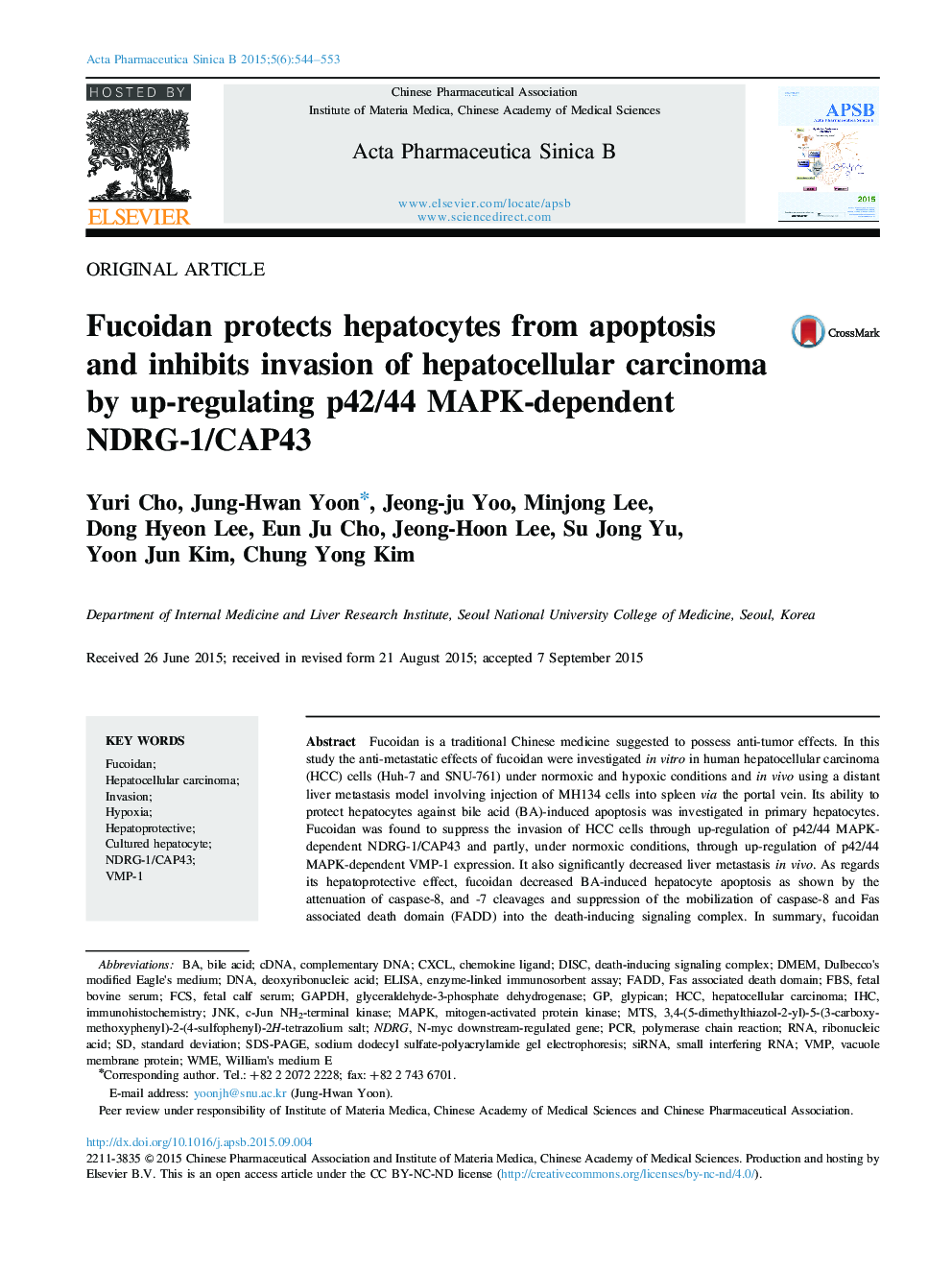| Article ID | Journal | Published Year | Pages | File Type |
|---|---|---|---|---|
| 2474504 | Acta Pharmaceutica Sinica B | 2015 | 10 Pages |
Fucoidan is a traditional Chinese medicine suggested to possess anti-tumor effects. In this study the anti-metastatic effects of fucoidan were investigated in vitro in human hepatocellular carcinoma (HCC) cells (Huh-7 and SNU-761) under normoxic and hypoxic conditions and in vivo using a distant liver metastasis model involving injection of MH134 cells into spleen via the portal vein. Its ability to protect hepatocytes against bile acid (BA)-induced apoptosis was investigated in primary hepatocytes. Fucoidan was found to suppress the invasion of HCC cells through up-regulation of p42/44 MAPK-dependent NDRG-1/CAP43 and partly, under normoxic conditions, through up-regulation of p42/44 MAPK-dependent VMP-1 expression. It also significantly decreased liver metastasis in vivo. As regards its hepatoprotective effect, fucoidan decreased BA-induced hepatocyte apoptosis as shown by the attenuation of caspase-8, and -7 cleavages and suppression of the mobilization of caspase-8 and Fas associated death domain (FADD) into the death-inducing signaling complex. In summary, fucoidan displays inhibitory effects on proliferation of HCC cells and protective effects on hepatocytes. The results suggest fucoidan is a potent suppressor of tumor invasion with hepatoprotective effects.
Graphical abstractFucoidan protected hepatocytes from BA-induced apoptosis and preferentially inhibited invasion of HCC cells by up-regulating p42/44 MAPK-dependent NDRG-1/CAP43, suggesting it may be a potent suppressor of tumor invasion with hepatoprotective effects.Figure optionsDownload full-size imageDownload as PowerPoint slide
